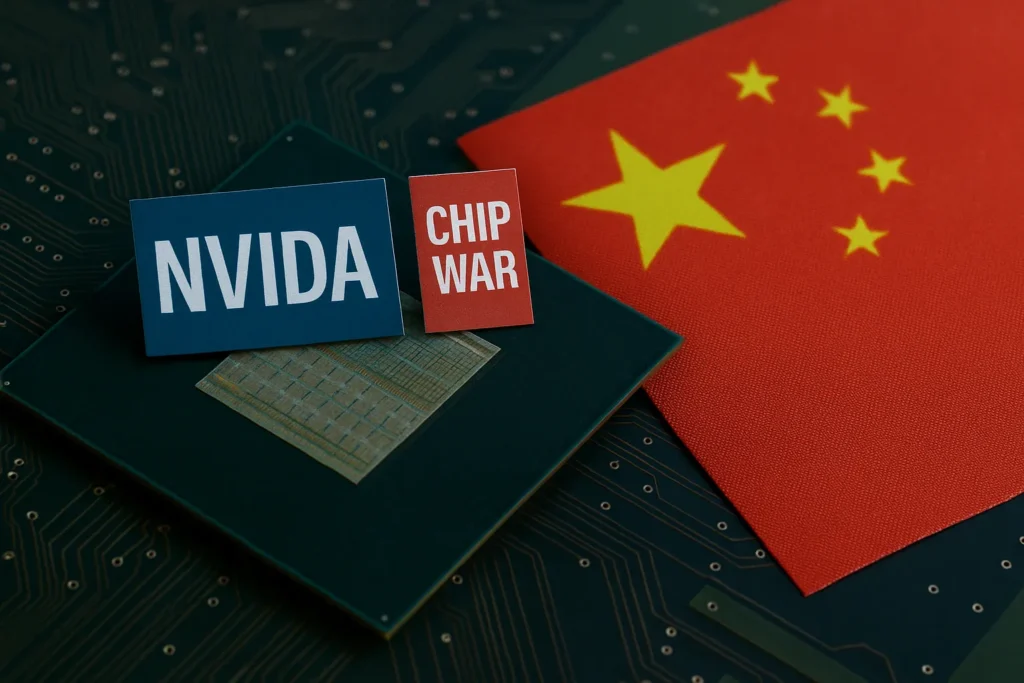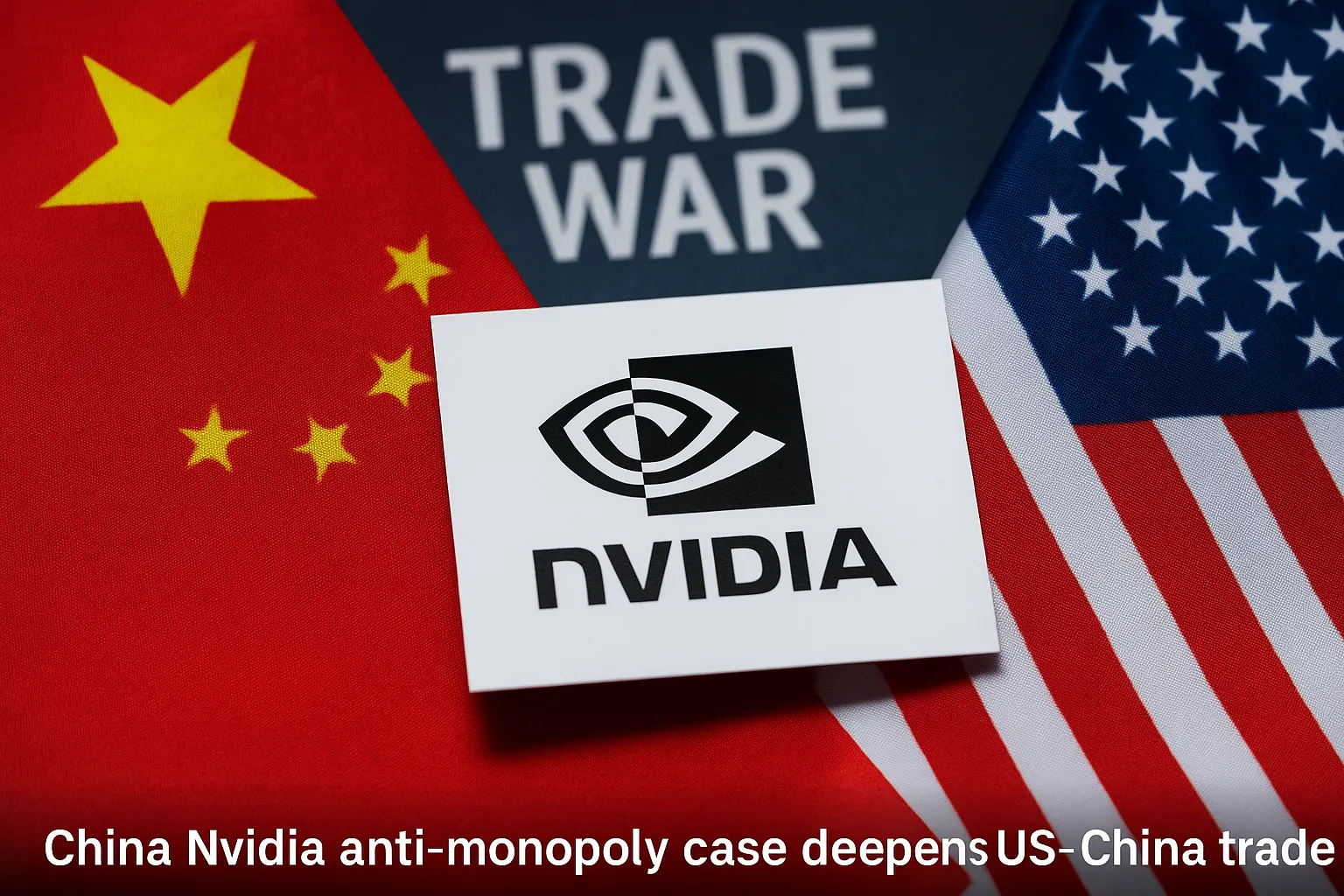China’s accusation of Nvidia over anti-monopoly violations is more than a legal issue. It is a calculated strike in the trade war. Instead of consumer rights, this fight is about power, rivalry, and the fragile state of global technology. The China Nvidia anti-monopoly claim shows how politics now decides the future of innovation.
Context: the official story
Chinese regulators accused Nvidia of breaking anti-monopoly rules, pointing to its dominance in semiconductors. Officials explained the move as an effort to keep markets fair and protect buyers.
At the same time, Nvidia’s shares dropped soon after the news. The US government, however, called it retaliation for Washington’s own limits on Chinese firms. In addition, mainstream reports framed it as a normal “regulatory dispute” that markets would soon absorb.
Oppositional Argument: why this is not just regulation
Let’s be clear. The China Nvidia anti-monopoly case is not mainly about fair markets. On the contrary, it is about political leverage. Beijing uses antitrust law as a tool in the wider conflict, targeting the company that best reflects US dominance in chips and AI.
Saying this is “regulation” is misleading. In fact, it is retaliation. Washington banned Huawei and pushed to control TikTok. Now Beijing answers in kind. Moreover, both sides treat law as a weapon, not as justice. As a result, firms like Nvidia and ByteDance become pawns, while global trust weakens.
Analytical Breakdown: power, markets, and consequences
The semiconductor sector is the battlefield of this century. Nvidia leads the supply of GPUs vital for AI, defense, and finance. By striking at Nvidia, Beijing signals it can hold back Western progress.
This move comes while the US restricts chip exports to China. Therefore, it adds more strain to global supply lines that depend on cooperation. If the back-and-forth continues, the risk will not be short dips in markets. Instead, the world could face major shortages, inflation, and lasting damage.
History gives warnings. During the Cold War, embargoes slowed progress and locked nations into weak tech systems. In contrast, open trade fueled growth. Today’s China Nvidia anti-monopoly conflict could repeat past mistakes, only on a much larger scale.

Human Perspective: workers, consumers, and investors
For buyers, the outcome may be higher prices and fewer devices. For investors, uncertainty grows as every statement shakes stock values. For workers in Asia and beyond, jobs depend on steady supply chains that are now at risk.
Ordinary people rarely win in these fights. They face layoffs, higher bills, and fear for the future. In reality, elites play their power games, while citizens pay the price.
Counterarguments
Some argue that Nvidia’s dominance is a genuine monopoly threat. Others say smaller firms could benefit if regulators act.
Although such points sound fair, they ignore the timing. Why now, and why in the middle of rising tensions? The selective focus shows this is political. Genuine competition policy cannot grow out of global rivalry.
Conclusion: law as a weapon, not justice
The China Nvidia anti-monopoly dispute proves that law in global trade is less about fairness and more about control. Beijing shows it will answer every US move with one of its own.
Consequently, the danger is not only a shortage of chips but the collapse of open cooperation itself. If the world normalizes lawfare, every industry may turn into a battlefield. Therefore, the urgent choice is simple: stop weaponizing rules, or accept endless conflict.
